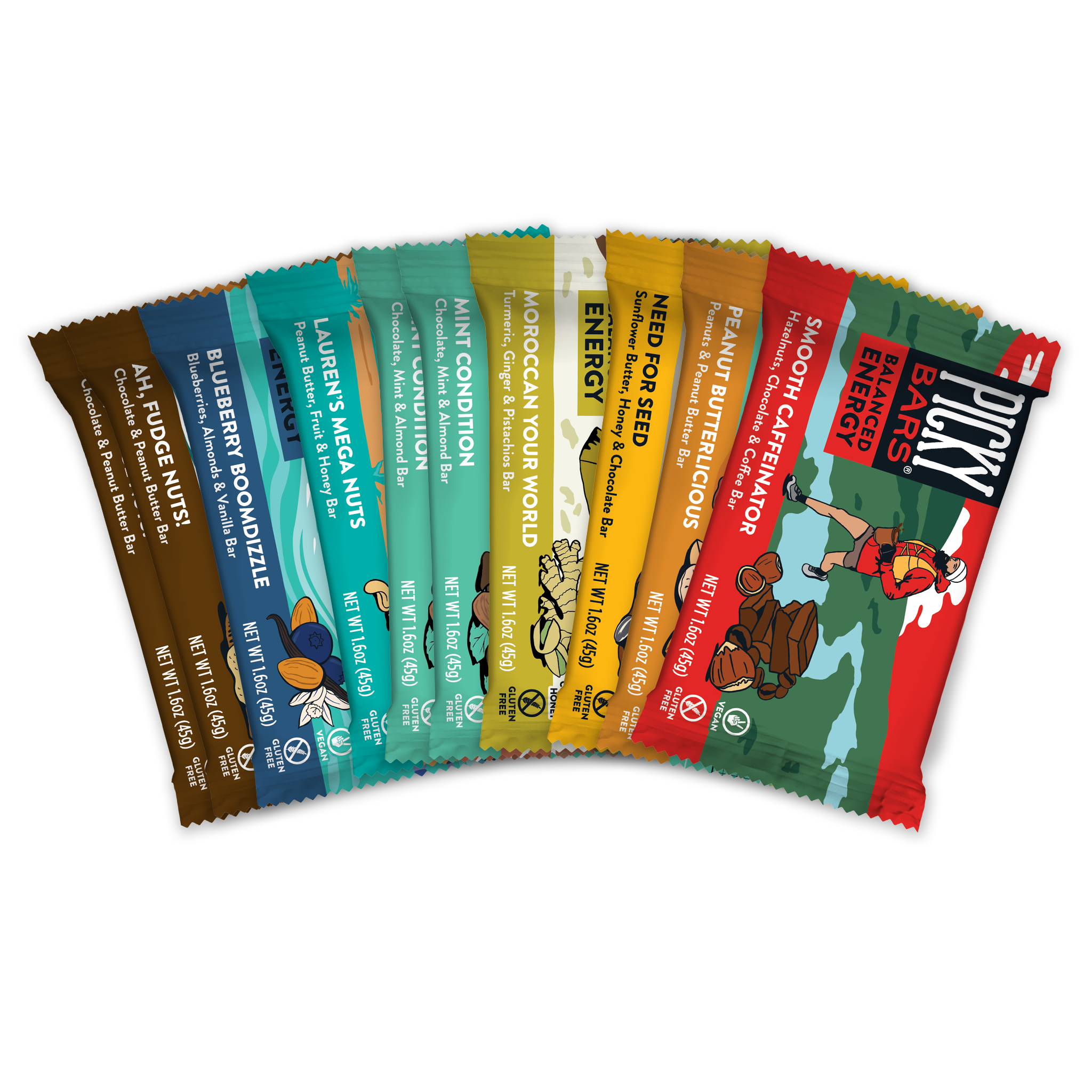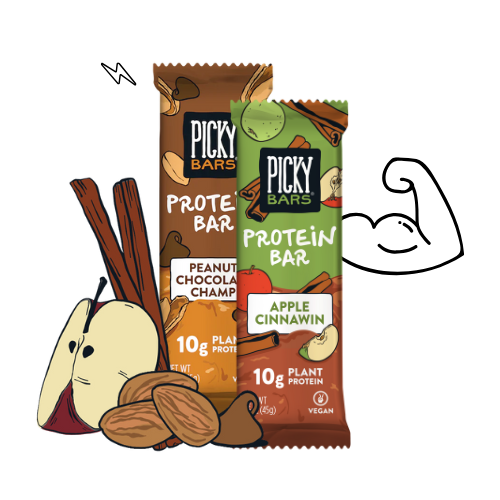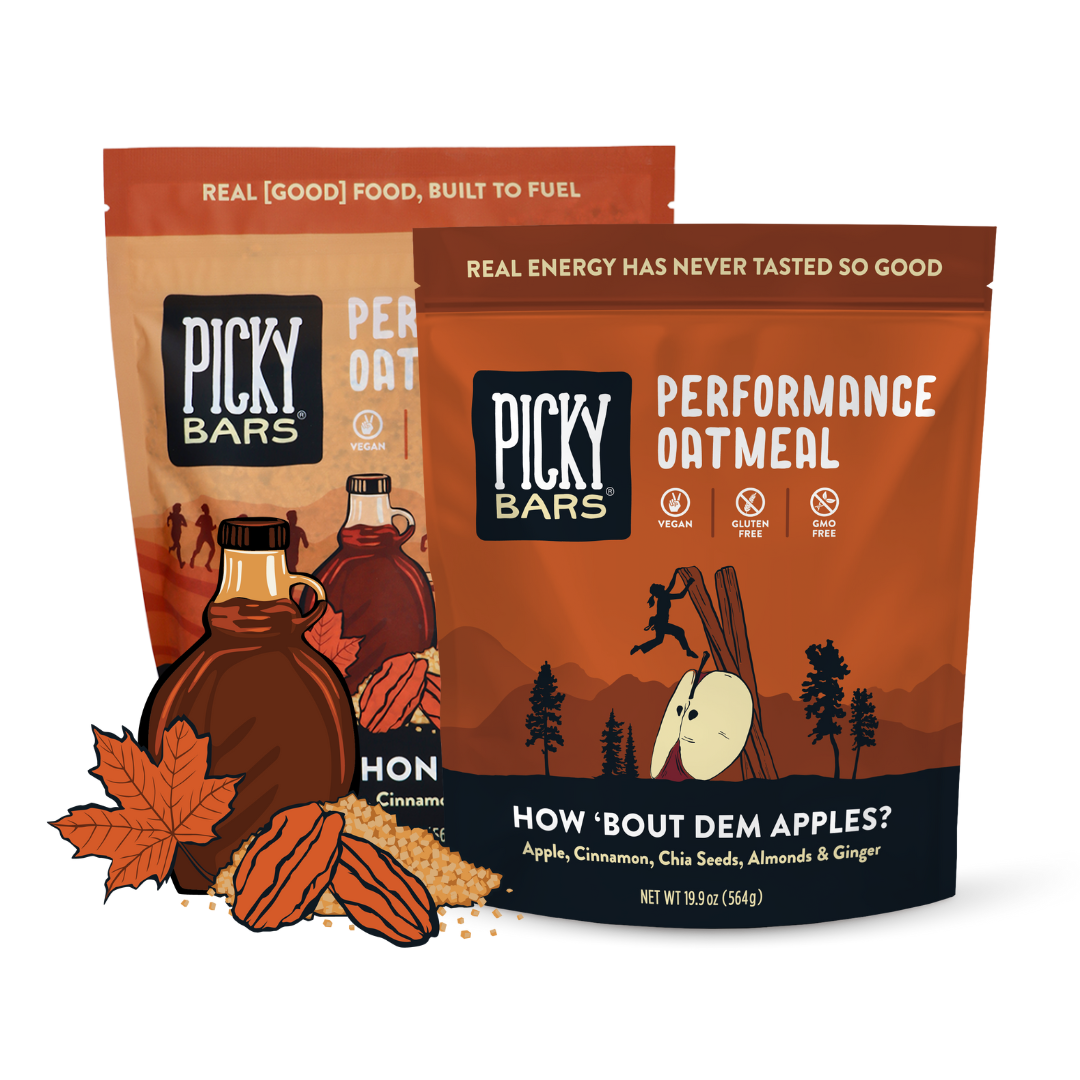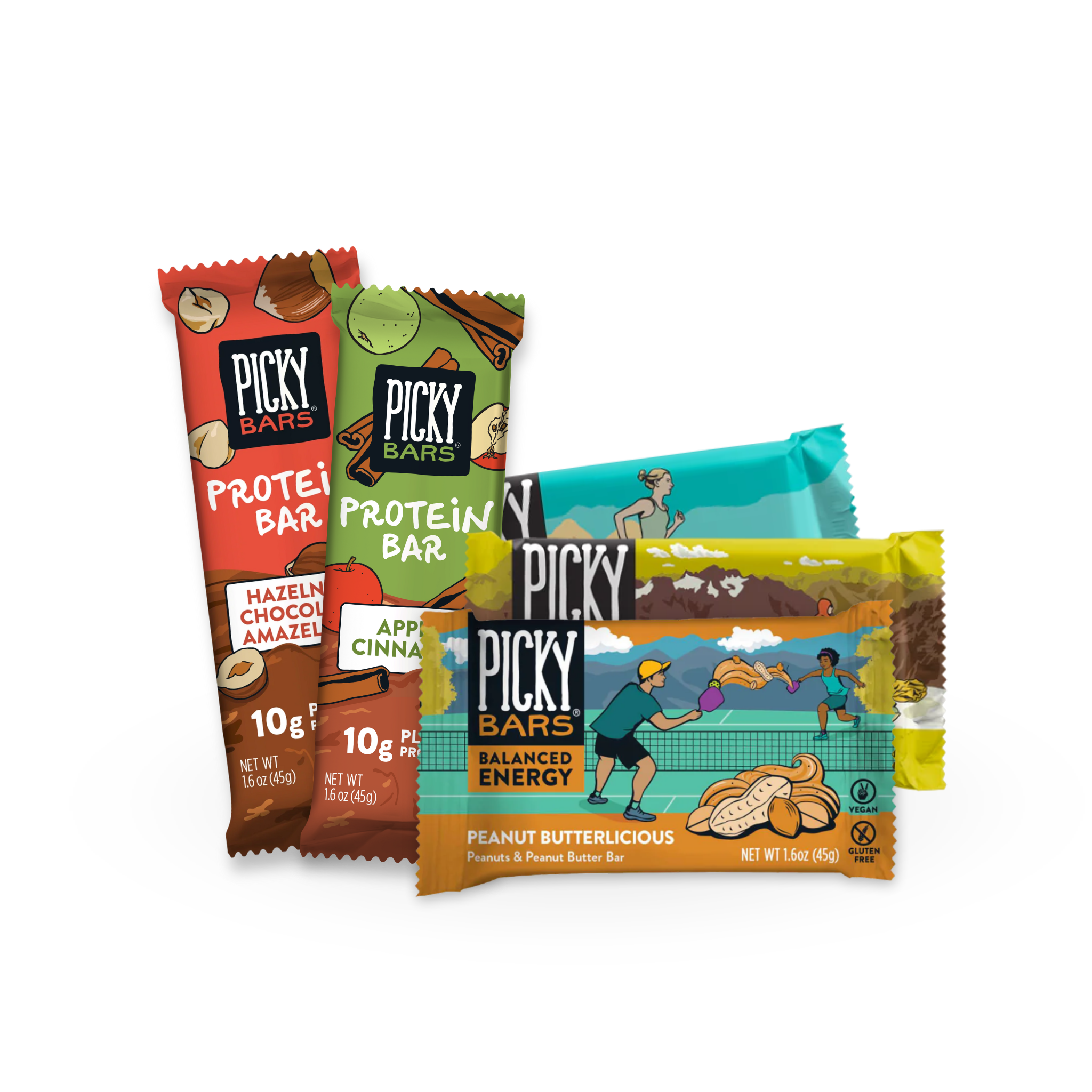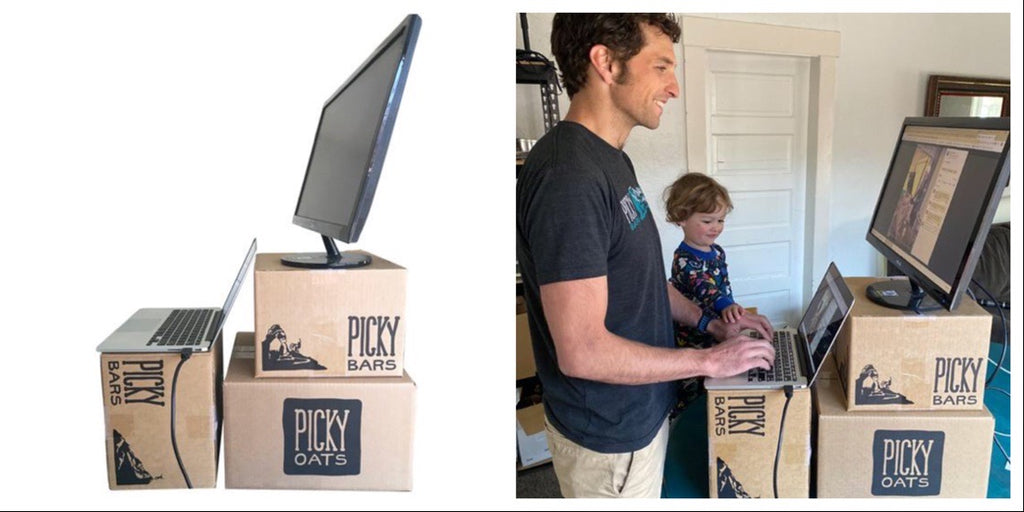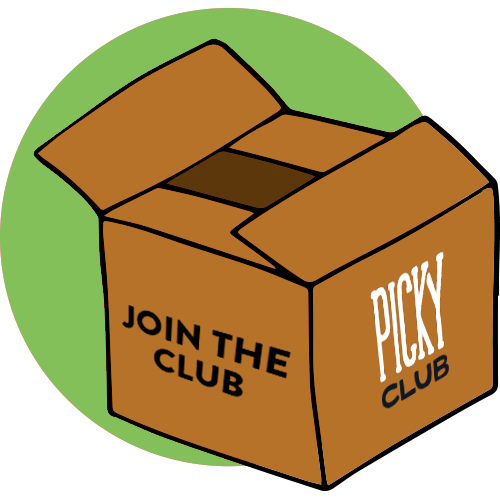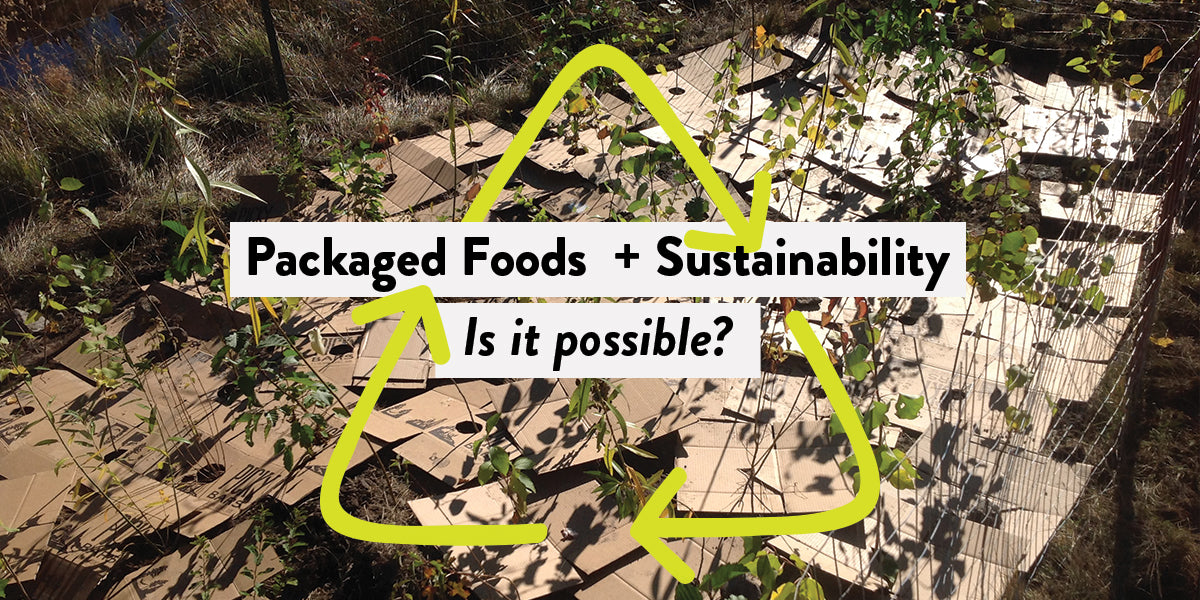

· By Sarah Conklin
Our Sustainability Story
As socially and environmentally conscious people with customers who are the same, we get a fair number of questions about the sustainability practices of our company. The short answer is two fold - 1) We’ve put a lot of work and research into this front, particularly given how small we are and 2) While we’ve made some solid progress, we (and the food industry in general) still have a ways to go.
The frustrating part for me as a founder/CEO is that it feels like environmental considerations are nearly always at odds with not just financial, but also food safety and operational considerations. It’s no secret that, generally, “sustainable” also means more expensive - which for a company our size and in a hyper competitive industry, makes it difficult to begin with - but every packaging supplier that we’ve engaged in “sustainable packaging” has noted that most if not all options will significantly decrease shelf life (and as a result, product quality) and operational throughput. This combined with the current state of recycling in general in the U.S., makes it tough to find great solutions.
This isn’t a new problem - it’s one that seems to plague the industry. Clif and Patagonia are two brands who have, compared to us, infinitely more resources and whose ethos are directly tied to environmental friendliness - but both have struggled to come up with more sustainable solutions. It’s clear that as an industry, we have some work to do still.
It is a fact that we consume single use plastic- but we do this as our current best option. It is not for lack of desire and substantial resources (for us) being put into fixing or making the problem even incrementally better. It is our goal to lead the effort in sustainable food practices and not for the marketing and sales value but for what actually is best for the world. We have already invested in our future through financial and time resources to make this better. When technology and resources can make what we are currently doing better, we are ready and eager to make a change.
Below is a quick summary of the things we’re doing to decrease our impact on the planet with the limited resources of a small company, and the ways we hope to get better. I’m always open for info and resource sharing on sustainable practices, so if you have any suggestions or ideas, please reach out. jesse@pickybars.com.
Thanks as always for the support - Jesse
Packaging
Our biggest impact as we see it right now, is our packaging. We’ve researched recyclable materials, but have found that the shelf life is drastically decreased as the barrier between the food and the outside air is compromised to make it recyclable. Plus the oils from the bars left on the packaging renders the material nearly non-recyclable, as the oil causes problems during the recycling process.
Compostable packaging has similar problems, with the added hurdle that most compostable materials are only able to be processed in an industrial facility. We’ve also seen reports suggesting that the chemicals used in most compostable packing is actually worse for the environment than other conventional, non-compostable materials.
So what we have done is ordered more at a time (one full year’s supply) to reduce carbon footprint from shipping and packing material (this has perhaps the most benefit but is the least sexy in terms of “green-ness”).
We continue to seek out more sustainable packaging with a goal of pivoting to an option once one presents itself to the industry.
Ingredient Sourcing
Our contract manufacturers do a great job sourcing local ingredients whenever possible, and we are always seeking out those with sustainable and responsible practices. We’re in talks with suppliers who ensure child free labor practices (this can be particularly prevalent in chocolate and coffee bean farming), and we’re working to get those suppliers approved to the food safety standards necessary to bring them into an industrial facility.
Lean Processes
From shipping to finance, to the number of employees to how many squares of toilet paper each of them is allowed to use (KIDDING), we’re always looking for ways to reduce waste and environmental impact inside HQ.
Refilling/Reusing bags + jars
This is one we’ve heard a lot from customers - “Can I send in my Oatmeal bag and/or Drizzle jar and get it refilled?” We wish! We would love to have a refill option for you, but unfortunately food safety regulations prohibit it at nearly all of our manufacturing partners, so it’s not possible at the time. Maybe someday!
Repurposing cardboard
We go through a lot of cardboard between our incoming “master cases” from manufacturers and our outgoing Picky Club Boxes. We use recycled content in nearly all of it. And we’ve found and are exploring ways to reuse this product ourselves, including:
Local Replanting Support - Our former neighbors, ONDA, have been repurposing our used cardboard master cases as protection in their replanting projects. The cardboard helps retain moisture in the arid desert ground and prevents weeds from overtaking the young saplings. They say survival has increased 10% since they started using them! (When you’re planting 2,500 trees in a weekend, that’s a huge help!)
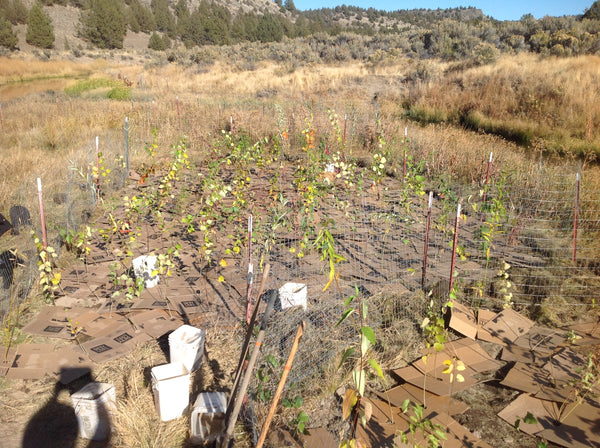
Master Case --> Picky Club Box? - One project we’re working on is creating boxes that can be used twice, once incoming (master case deliveries from our manufacturers) and then repurposed for our Picky Club boxes. We still have a ways to go on appropriate sizing and USPS constraints, but my hope is that by next year our Picky Club customers are getting boxes that are reused, in addition to recycled and recyclable. One less box in our system.
Sustainable Stand Up Desk! - Ok, this is might seem like a joke, but we (or at least I), thinks it's also kind of awesome! I’ve been using old Picky Bars boxes for my stand up desks both at the office and at home for years. And so as a brand new way to give more boxes second lives, we’ve actually created a REAL product - Jesse’s Sustainable Stand Up Desk! They’re honestly very functional, customizable with different box sizes and orientations, inexpensive and very light! Perfect for all your WFH life right now. Check out the product page if you’re interested - FREE with any purchase over $50, or for $10 + s/h (Ironically, they’re kinda expensive to ship by themselves).
Jesse's Sustainable Stand Up Desk
On a final note, keep an eye out next week for perhaps our most "green" product yet! Not only is it less packaging and our lowest cost per meal, but it’s coming with a donation element to celebrate the launch. Stay tuned!

